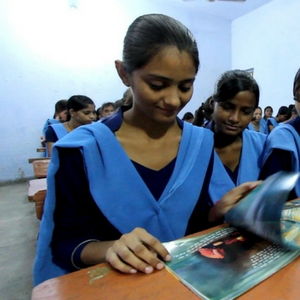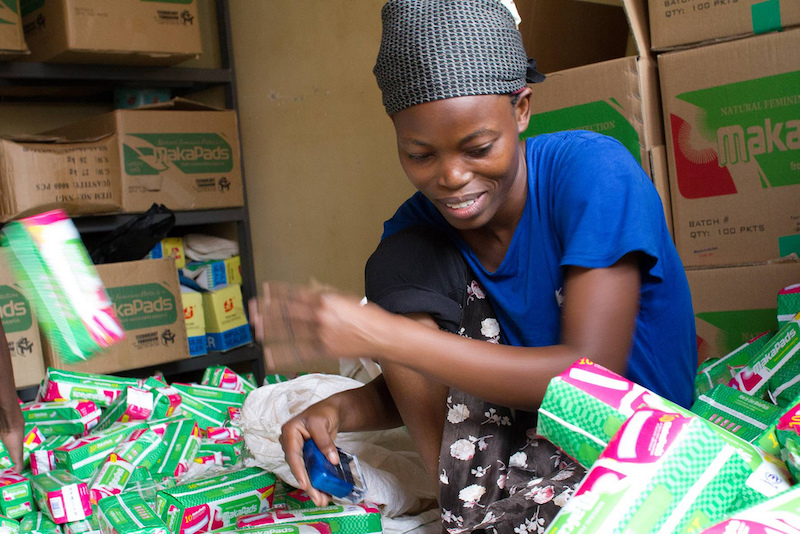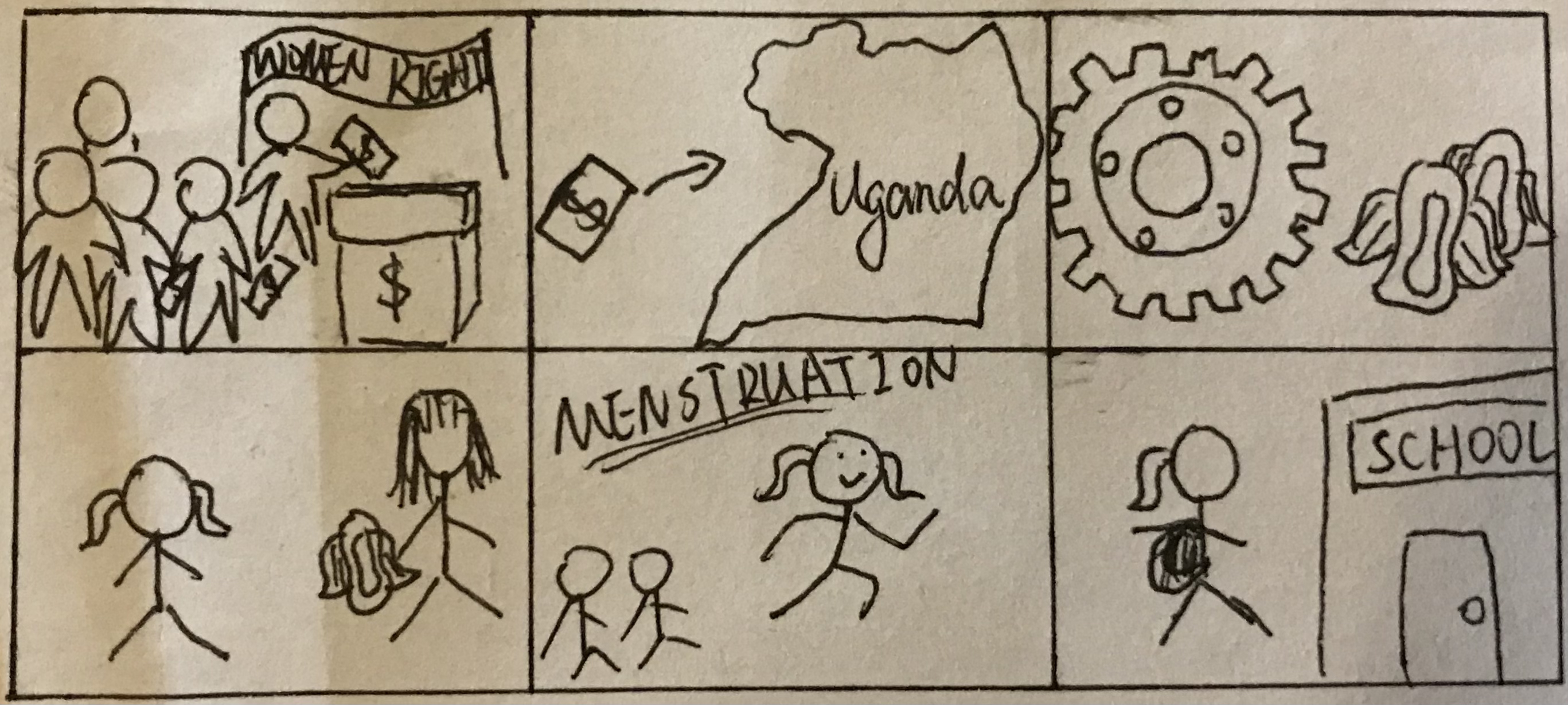Promote gender equality
Technological module: Database
Part One: Projects

PROMOTING GENDER EQUALITY
Project carriers: German Federal Ministry for Economic Cooperation and Development (BMZ)Beneficiaries: Women
Users: Women
Need: Discrimination and gender inequality are a global problem. Girls and women cannot participate equally in social life, even in the partner countries of German development cooperation. Gender-specific discrimination through harmful traditional practices and laws or discriminatory standards and gender roles needs to be overcome, as does violence against women and girls.
Principle:
- Capacity development and institutional learning
- Strategic positioning and defining of topics on national and international levels
- Strengthening the portfolio on equality and women’s rights in sub-Saharan Africa and North Africa
- Promotion of innovation and expansion in German development cooperation
Main technologies involved:
- Learning and innovation laboratories
- The newly designed web page
- Social networks
Source: click here

SUPPORT-A-GIRL
Project carriers: GSNEHA KARMA FOUNDATIONBeneficiaries: Indian young girls
Users: Indian young girls
Need: With financial support from donors we are able to provide education, accommodation, clothing, healthcare, and other needs to the girls in this program.
Principle: The goal of this program is protect girls rights and to ensure that we support the girls until they are well established in their professional lives and are able to live freely and independently.
Main technologies involved: Internet
Source: click here

GENDER EQUALITY
Project carriers: FUNDLIFEBeneficiaries: Girls in poverty
Users: Girls in poverty
Need: Girls in poverty are 4x more likely to experience violence than boys, and over 70% of all online expolitation victims are children aged 10-18, ff these, 87% are girls. While victims of sexual exploitation for commercial purposes are predominantly 13 to 18 year-old girls, often, pushed into this dark world by family members desperate and in extreme or acute poverty.
Principle: All lives have equal value and potential.
Main technologies involved: Internet
Source: click here

MAKAPADS
Project carriers: IMPACCBeneficiaries: Women in Kampala, Uganda
Users: Women in Kampala, Uganda
Need: Sanitary pads do exist, but they are costly and not always readily available in rural areas of Uganda. Many girls therefore resort to putting rags in their undies, which chafe and embarrass them when they show. Plus, traditional pads clog pit toilets and are a burden to the already frail sewage system.
Principle: MakaPads offer biodegradable sanitary towels made from papyrus and recycled paper to rural communities. MakaPads are manufactured locally and sterilised naturally via the sun’s UV light. Thanks to distribution through village shops and a lower price point compared to corporate competitors, they are more readily available and affordable to rural communities. As they are mostly made of natural ingredients, they don’t clog pit latrines as much as ordinary pads.
Main technologies involved: Sterilised naturally technology
Source: click here
Part Two: Deepening


1. MAKAPADS
Carriers and actors of the project:- CEO: Shirley Kandabu
- Operations Coordinator: Kathryn Nakitto
- Board Member: Paul Kimera
- Board Member: Mirembe Nnassuuna
Research question:
- What is the sanitary situation in the poor region of Uganda?
- How can the girls with menstruation get sanitary products?
- Will they go to school normally when the menstruation is coming?
- What is the frequency of them to use sanitary products now?
- How does the use of sanitary products improve their equality awareness?
The reason you selected this project: The use of sanitary products on the one side can improve the situation of women in poor region and ensure their health, on the other side can awaken women’s awareness of equality.
2. USER SCENARIO
Users: Women in Kampala, Uganda.Persona:
- First name: Lily
- Age: 18
- Activity/Profession: student
- Place of residence, country, environment: the rural region of Uganda
- Family status: parents and 2 brothers
- Income: below 5,000 euros a year
- List of hobbies and passions: reading and painting
- going to the school normally and becoming a teacher in the future
- List of problems and frustrations: there is a lack of sanitary products
- Major issue related to the subject: it’s a shame when the menstruation is coming in rural regions so one third of a month girls cannot go to school normally.
Key features:
- poor region
- low income
- girls with menstruation
UX storyboard:

3. TECHNICAL ANALYSIS
General principle:- Collect recyclable materials
- Manufacture sanitary napkins
- Distribution of sanitary napkins
- Waste degradation
Technical overview - Database version:
- Address:
- Contact:
- Quotation:
- Address:
- Contact:
- Quotation:
- Address:
- Contact:
- Quotation:
Napkins manufacturer 1
Napkins manufacturer 2
Napkins manufacturer 3
- Address:
- Contact:
- Age:
- Situation after using the napkins:
- Address:
- Contact:
- Age:
- Situation after using the napkins:
- Address:
- Contact:
- Age:
- Situation after using the napkins:
Customer 1
Customer 2
Customer 3
- Errors - updated regularly
- Logs - updated regularly
Added value thanks to databases:The database can help the organization to better follow the manufacturing and distribution of napkins, as well as focus on the usage of napkins by girls before and after they receive the makapads.
Complementary sources:
link one
link two
link three